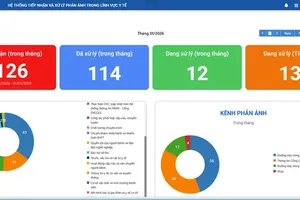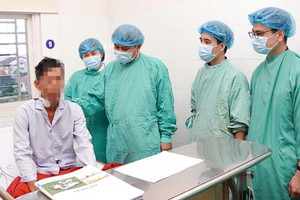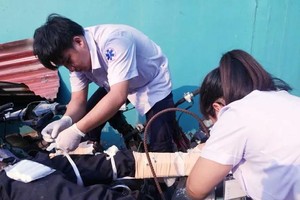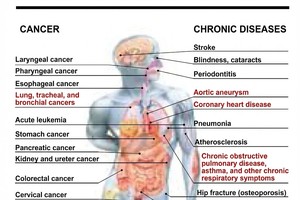The Ministry of Health reports a rapid nationwide rise in measles, dengue fever, and hand, foot, and mouth disease cases since the start of the year. The number of cases has exceeded both the same period last year and the previous 3-year average, signaling a potential outbreak in the near future.
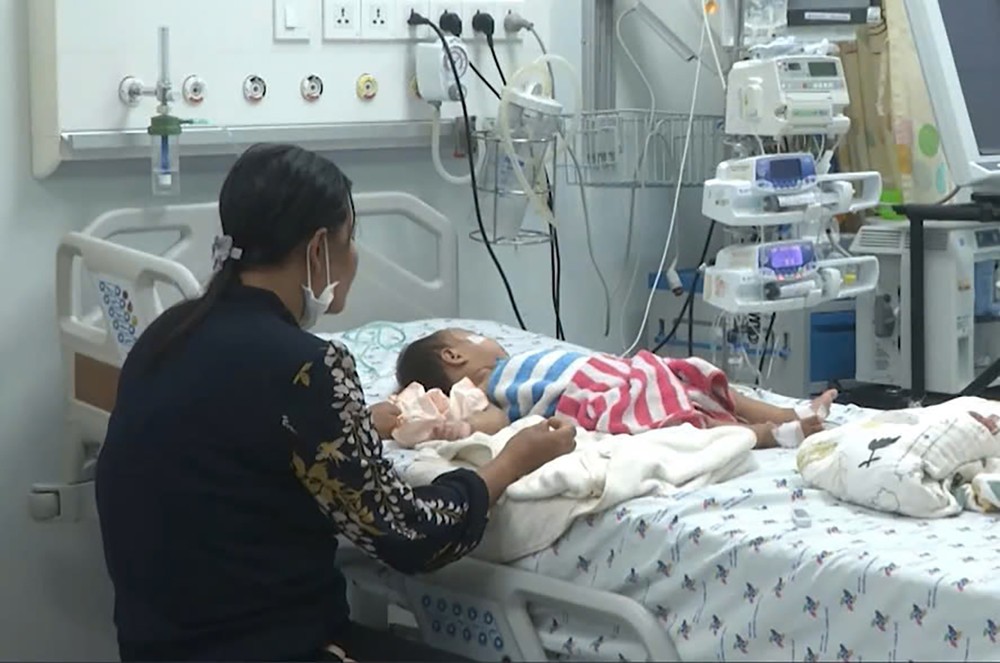
Many hospitals have also begun to record sporadic cases of meningococcal encephalitis, chickenpox, whooping cough, and flu.
According to the Ministry of Health, 4,122 suspected measles cases were reported nationwide last week—an 8.8 percent decrease compared to the previous week’s 4,519 cases. Two measles-related fatalities were also recorded; one is a cancer patient with multiple underlying health conditions, and the other was a child who was hospitalized late, three days after symptom onset.
Since the beginning of 2025, a total of 76,312 suspected measles cases have been reported across all 63 provinces and cities, with 8,614 confirmed positive.
Most measles cases have increased rapidly in the northern provinces. The measles vaccination campaign's conclusion has led to shifting disease patterns across different age groups. Specifically, compared to the first 3 months of 2025, the group from 1 to 10 years old had 61.4 percent of measles cases, which has now decreased to 6 percent and decreased slightly in the group under 1 year old. However, there has been an increase in the group over 10 years old and adults. In the southern region, according to statistics from the Ho Chi Minh City Center for Disease Control, in the past week, the city recorded 476 cases of hand, foot and mouth disease, an increase of 36.6 percent compared to the previous month.
The total number of cumulative cases from the beginning of 2025 to present is 3,168. Binh Tan District, District 8, and Nha Be District have witnessed high numbers of hospitalization cases.
At Children's Hospital 1, from the beginning of 2025 to present, 142 children have been hospitalized due to hand, foot, and mouth disease, an increase compared to the same period in 2024 and higher than the average of the previous 5 years.
On average, the hospital receives and treats 30-40 children with hand, foot, and mouth disease each week. The hospital is treating 3 severe cases of hand, foot, and mouth disease (grade 3, grade 4); worse, medical workers predicted that the rate of children with this disease will increase rapidly in the coming months.
Dr. Pham Hoang Anh Khoa from the Department of Pediatrics of Thu Duc City Hospital reported a significant surge in hand, foot, and mouth disease cases since the beginning of the year, exceeding 130 – a marked increase compared to the previous year. He noted that the number of infections continues to rise, predominantly affecting children under the age of five.
Dr. Nguyen Dinh Qui, Deputy Head of the Department of Infectious Diseases at Children's Hospital 2, indicated that hand, foot, and mouth disease typically exhibits seasonal patterns, with peaks in April-May and September-October. While primarily affecting infants and young children, adults are also susceptible. Dr. Qui further explained the current lack of a preventive vaccine or specific treatment, with most patients recovering within 10 to 14 days.
However, he cautioned that the disease can progress to severe complications and even death. Transmission occurs readily through contact with nasal and throat secretions, saliva, blister fluid, and contaminated surfaces such as tables, chairs, doorknobs, floors, and personal items of infected individuals.
According to Dr. Nguyen Dinh Qui, early symptoms of hand, foot, and mouth disease in children commonly manifest as fever, poor appetite, discomfort, and sore throat. Parents should be vigilant for the subsequent development of painful oral lesions on the tongue, gums, and inner cheeks, which typically emerge 1 to 2 days after the fever. The characteristic rash, which may be flat or raised and often includes blisters, is usually concentrated on the palms and soles but can also appear on the buttocks and elsewhere. To prevent potential complications, Dr. Qui urges parents to seek timely medical attention for their children at the first signs of these symptoms.






